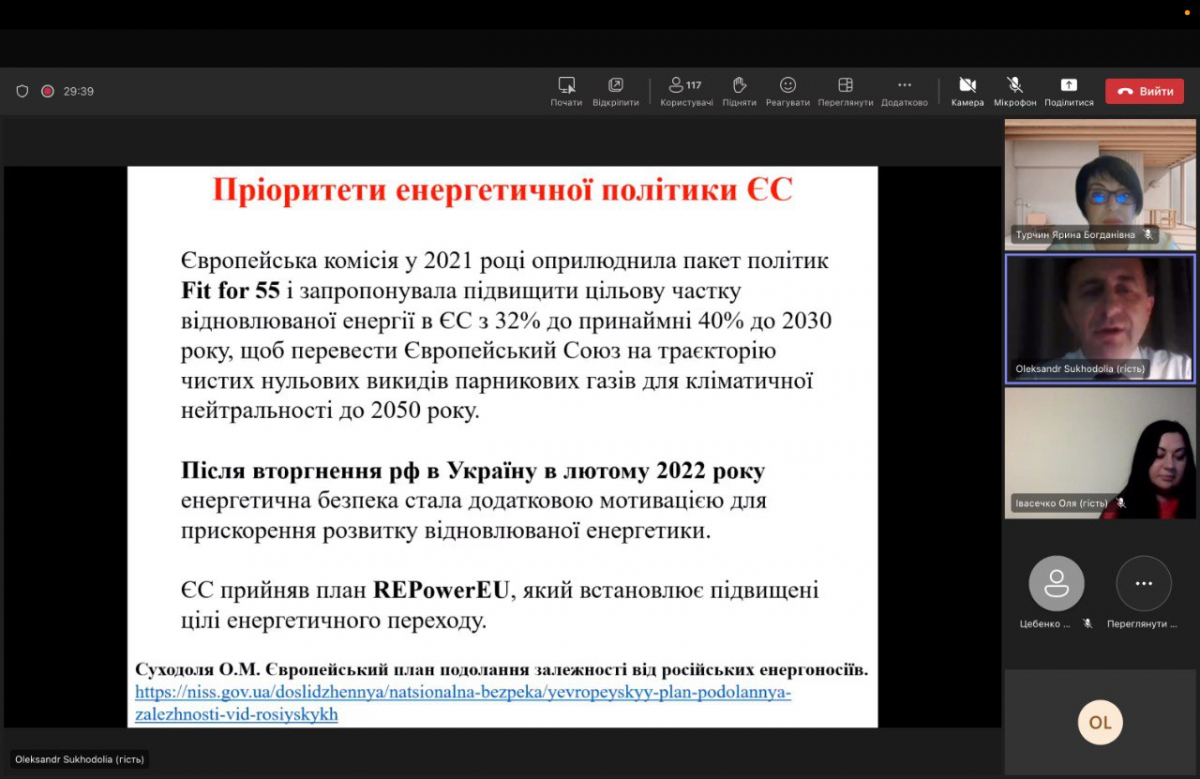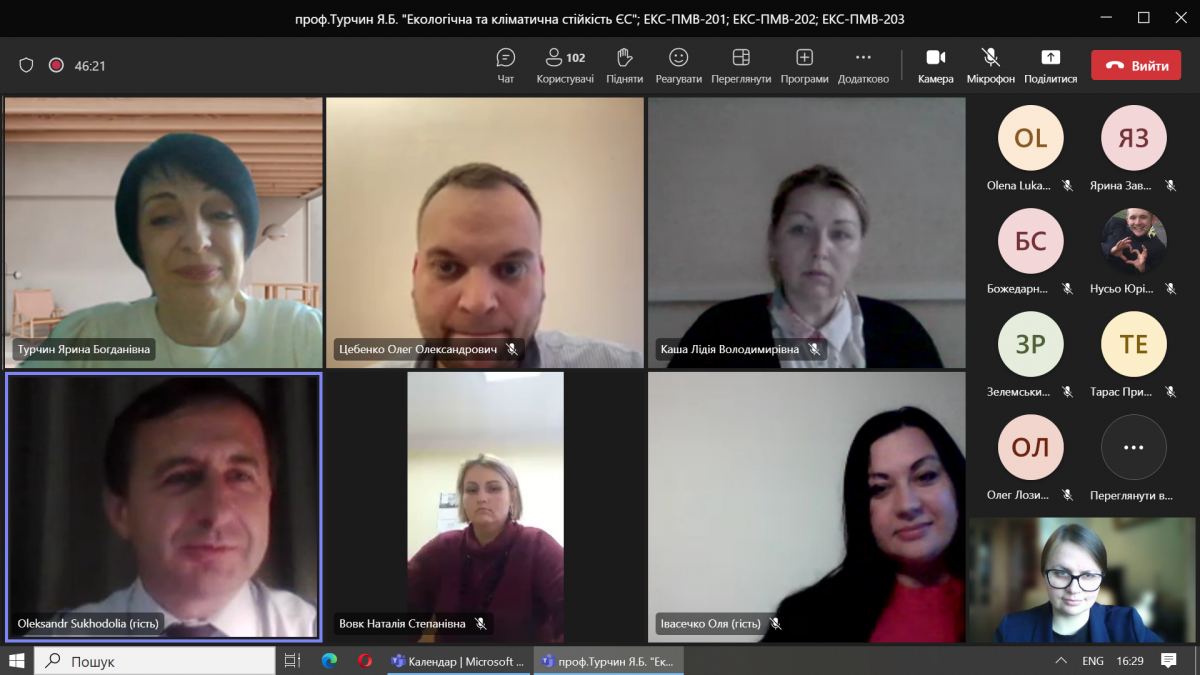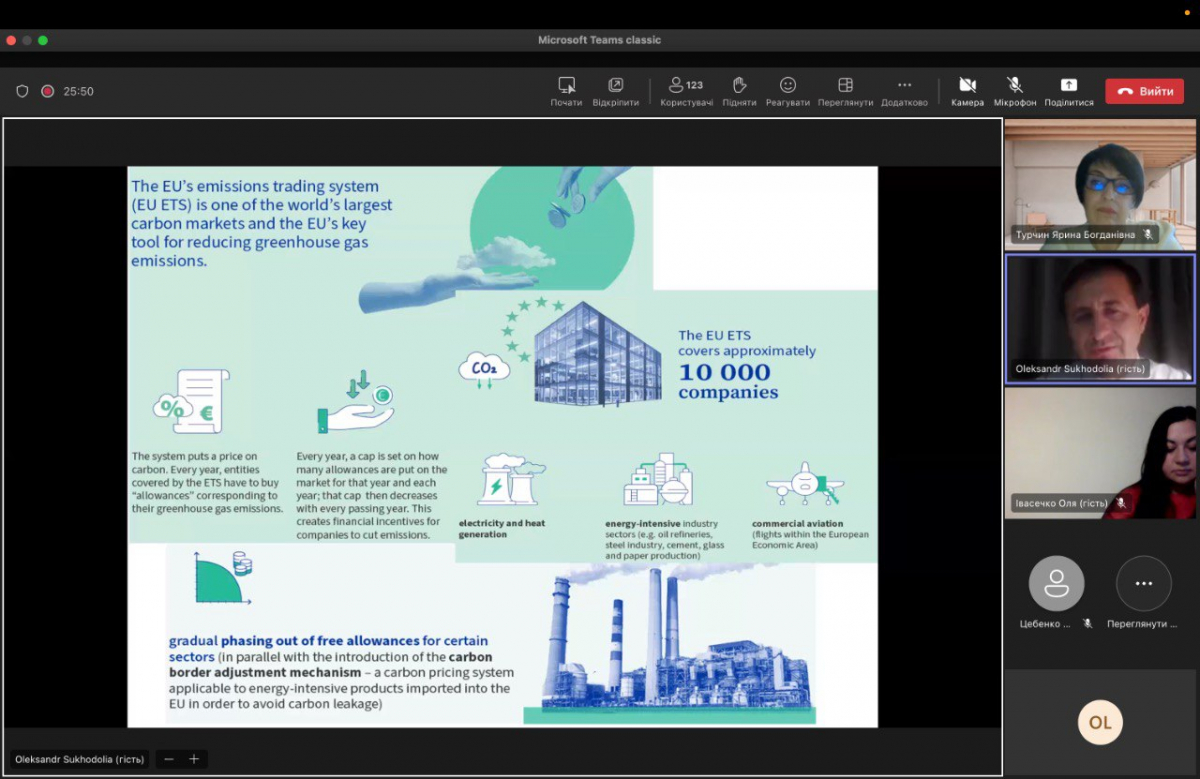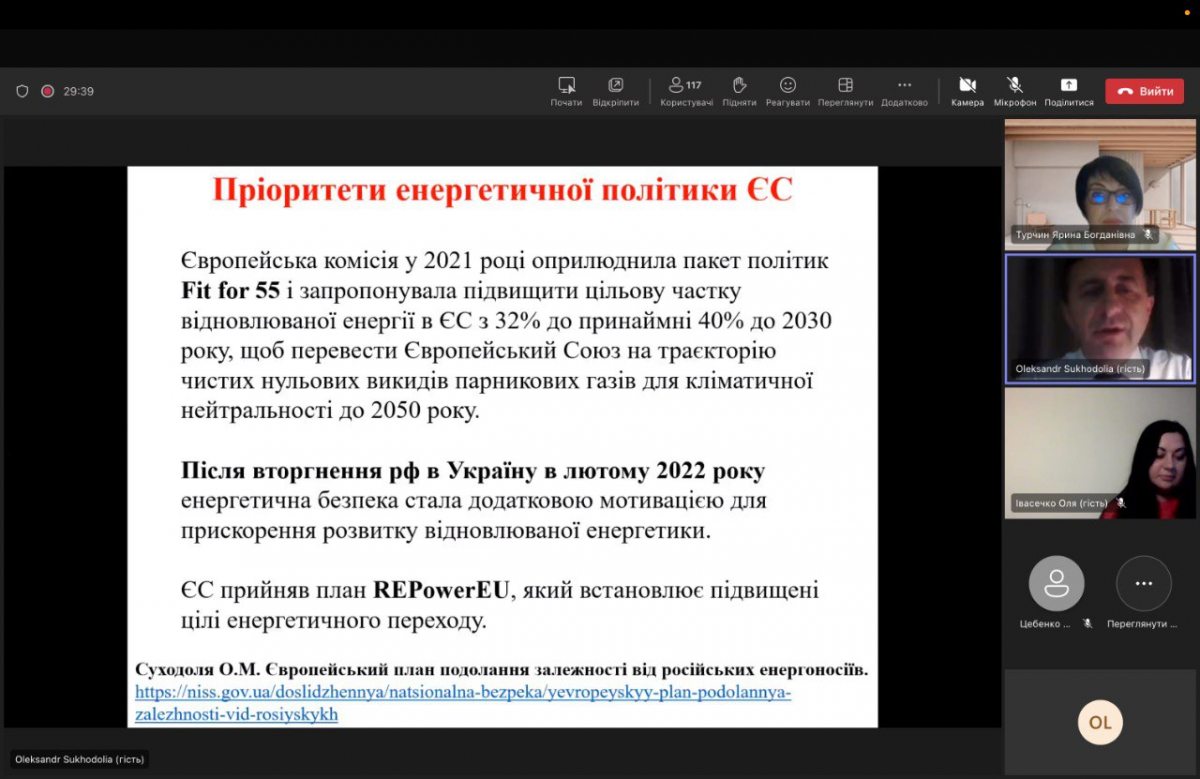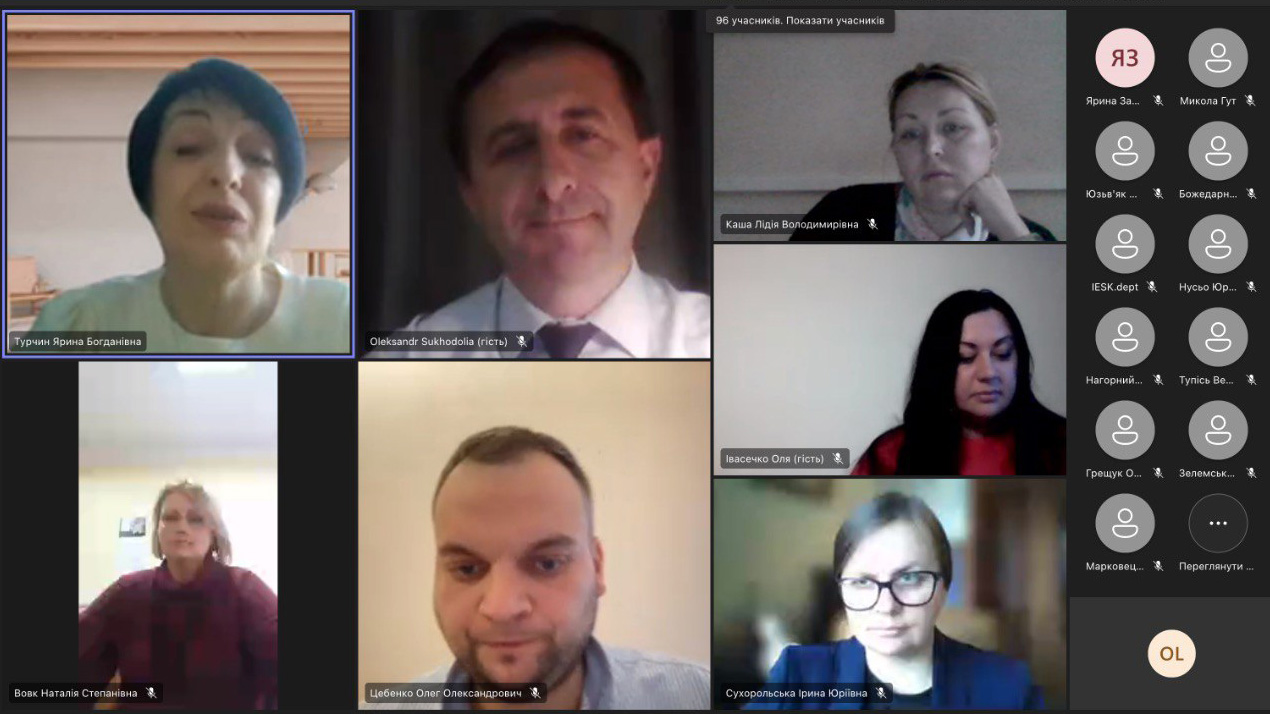A public lecture by Oleksandr Sukhodola, Head of the Department of Critical Infrastructure, Energy and Environmental Security of the National Institute for Strategic Studies, Doctor of Science in Public Administration, Professor, on the topical topic "Current Priorities of the EU Energy Policy and Opportunities for Ukraine" was held online on 9 November 2023.
The speaker primarily focused on the problem of climate change and the main global documents in this regard, in particular the Kyoto Protocol and the Paris Climate Agreement, the differentiated approaches laid down in these acts and the obligations of the signatory states. Oleksandr Sukhodolya devoted special attention to the European Green Deal as a roadmap of measures aimed at transforming the EU into an efficient, sustainable and competitive economy, and making the European Community the world's first climate-neutral continent by 2050 (a dimension of the EU's technological leadership in the international arena and global promoter of climate values).
In addition, Professor Oleksandr Sukhodolya highlighted the challenges to the EGD implementation caused by russia's armed aggression against Ukraine. The speaker presented the peculiarities of the implementation of the EU's Carbon Based Import Adjustment Mechanism (CBAM) and its impact on trade between Ukraine and the EU, as well as the problems and threats that may arise for our country in the context of its implementation.
During the presentation, the new EU priorities for ensuring the energy security of the Union, which are conditioned by russia's full-scale armed aggression against Ukraine, were presented. In particular, RePowerEU - a plan to overcome the EU's energy dependence on russia since 18.05.2022; Fit for 55 - a communiqué on the implementation of the EGD, as well as Smart Grid - a set of technologies that transforms the old-style energy infrastructure into a modern digital system.
In addition, the speaker drew attention to the new EU Directive on the resilience of essential services/functions of entities operating critical infrastructure (the Critical Entities Resilience Directive), and outlined Ukraine's experience in ensuring the resilience of energy infrastructure in the winter period of 2022-2023. He also touched upon the innovative future of Ukraine's energy sector, including technologies, business models, market design, operating systems and power grids.
One hundred and twenty-three participants attended Oleksandr Sukhodola's lecture, including students of various specialities from Lviv Polytechnic National University, lecturers, and EUSTS project participants from the departments of SCID, PME, and EX. Participants from other higher education institutions of Ukraine, namely the O.M. Beketov Kharkiv National University of Urban Economy and Lesya Ukrainka Volynkyy National University, also registered for the lecture.
The participants of the event were interested in the threats to Ukraine in the context of the implementation of the DCFTA, the use of rapeseed as a biofuel, hydrogen energy, potential scenarios for the situation at the Zaporizhzhia NPP, the future use of the Ukrainian gas transportation system, etc.
The event was held within the project "European Studies for Technical Specialities at Lviv Polytechnic National University (EUSTS)", which is implemented with the support of the EU Erasmus+ Jean Monnet Programme.
More information about the EUSTS project can be found on its website as part of the Lviv Polytechnic Portal.

